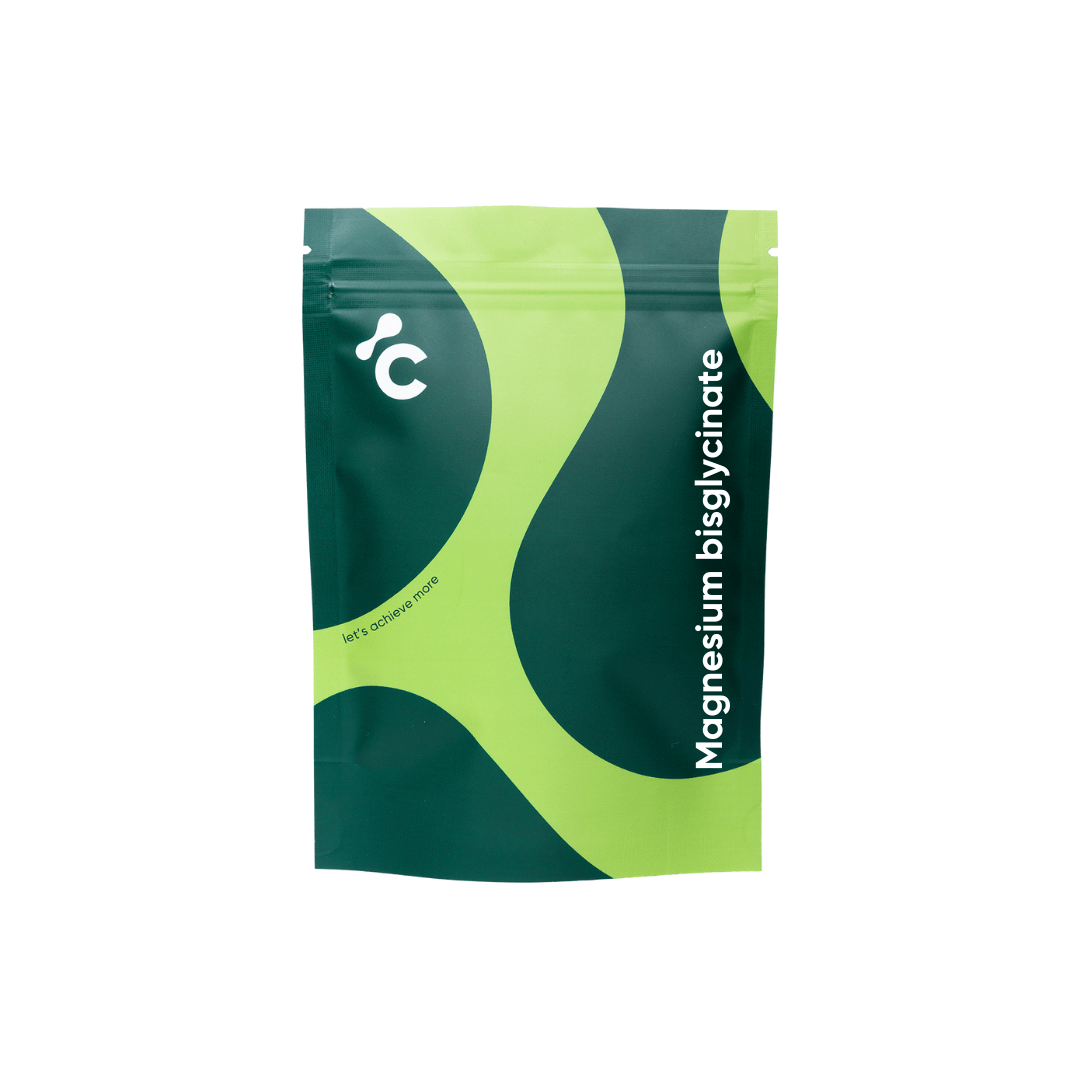When to Take Magnesium Glycinate: Morning or Night?

Should you take magnesium glycinate in the morning or at night? This article is structured to offer valuable insights entirely based on real user experiences. Our goal is to provide a platform where potential users can learn from the firsthand accounts of existing users, discussing their experiences with magnesium glycinate in dedicated contexts. By focusing on genuine discussions from those who have integrated this supplement into their daily routines, we aim to shed light on its potential effects and optimal usage times.
Table Of Contents
Article Methodology
To ensure the trustworthiness and relevance of the information provided, our article is structured around a methodical approach:
- Collection of Real-World Data: We read through user feedback on various online platforms dedicated to health and nootropics. The focus is to gather genuine experiences and insights directly from users who have experimented with magnesium glycinate.
- Sources of Information: Our research pulls from real discussions happening on popular platforms such as Reddit and Quora, where communities dedicated to discussing nootropics and supplements actively share their experiences and advice.
- Accuracy and Reliability Disclaimer: We do not claim that the discussions sourced are scientifically accurate or should be followed without personal discretion. Instead, we present this compilation as a collection of user-experienced data, encouraging readers to consider it as a resource for shared experiences rather than medical advice.
- Transparency of Sources: We believe in the importance of transparency and openly provide information about our sources. This allows readers to trace the origin of the user experiences we discuss, further enhancing the credibility and educational value of the article.
By adhering to this methodology, we aim to create a trustworthy and informative resource that helps readers understand the varied experiences of real users and make informed decisions about incorporating magnesium glycinate into their health routines.
Morning Intake of Magnesium Glycinate: Insights from User Discussions
Taking magnesium glycinate in the morning has been discussed by users with varying experiences. Here’s a detailed look at some actual sentiments expressed by individuals in your provided discussions:
Increased Energy and Alertness
Several users have pointed out that taking magnesium glycinate in the morning does not lead to drowsiness, which is often a concern with magnesium supplements known for their calming effects. One user explicitly mentioned, “Magnesium glycinate does not make me drowsy if that’s what you may be worried about. In fact, I can’t ever take it at night because it gives me horrible sleep quality! I used to take it in the morning with no issues.” This comment highlights that for some, magnesium glycinate is better suited for morning use, particularly because it avoids the sedative effects that can interfere with daytime activities.
Better Daily Functioning
Another aspect discussed is the improvement in daily functioning when taking magnesium in the morning. Users have reported feeling more equipped to handle daily stresses and anxiety with a morning dose. A comment in the discussion reflects this, with a user stating, “Yes its quite nice for anxiety!!!” indicating a positive impact on managing day-to-day anxiety when taken earlier in the day.
Absence of Sleep Disruption
The decision to take magnesium glycinate in the morning instead of evening by some users is often due to their sensitivity to the supplement’s effects on sleep. A user’s experience shared in the discussion underlines this, “I took it before bed and was wide awake until 6am… Not sure if it was related but I’m taking it in the morning now, and it doesn’t seem to have that effect.”
This user found that switching to morning intake helped avoid the undesired alertness at night, suggesting that the timing of magnesium glycinate can be crucial based on individual responses to the supplement.
These discussions indicate that the choice of taking magnesium glycinate in the morning is often based on personal experiences with the supplement’s effects on energy, sleep, and anxiety management. Users advocate for experimenting with timing to determine what best aligns with their body’s responses and daily needs. This highlights the personalised nature of supplement intake and the importance of monitoring one’s own reactions when starting magnesium glycinate.
Night Intake of Magnesium Glycinate According to Users
For many individuals, taking magnesium glycinate before bed is a preferred choice, especially due to its potential effects on improving sleep quality and aiding relaxation. Here are some direct insights from the discussions you provided, focusing solely on user experiences related to night intake:
Improved Sleep Quality
A user in the discussion expressed how magnesium glycinate has become a part of their nighttime routine due to its positive impact on sleep: “Taking magnesium glycinate about 30 minutes before bed has helped me tremendously. I sleep more soundly and don’t wake up as often.” This testimony highlights a common perception that magnesium glycinate can enhance sleep quality, making it a popular choice for evening consumption.
Another user described their specific benefits, stating, “I sleep more soundly and don’t wake up as often,” which further supports the idea that taking magnesium glycinate at night may contribute to a more uninterrupted sleep pattern.
Handling Sleep Disturbances
Some users specifically turn to magnesium glycinate in the evening to combat sleep-related issues. One participant shared, “I used to take it in the morning with no issues. So as long as it doesn’t make you sluggish, lethargic or exhausted, I don’t see why it would be an issue taking it during the day. Magnesium Malate has also been said to be energising, maybe.” While this user mentions daytime use, they highlight that their personal choice to avoid nighttime intake is due to the energising effects they experience, which contradicts the more common experiences related to sleep enhancement.
Nighttime Routine
Incorporating magnesium glycinate into a bedtime routine was mentioned as a beneficial practice by another user: “I take it about 1-2 hours before and also just begin to simply slow down and get in bed even if I am not quite ready .. works like a charm.” This approach not only involves the physiological benefits of magnesium but also suggests a ritualistic aspect, where the act of taking the supplement aids in mentally preparing for sleep.
The discussions about evening intake of magnesium glycinate often centre around its perceived benefits for enhancing sleep quality. Users cite improved sleep patterns and the ability to effectively unwind at night as key reasons for their preference for evening consumption. These firsthand accounts provide valuable insights into how individuals use magnesium glycinate to potentially improve their nighttime routine and overall sleep experience.
How to Take Magnesium Glycinate According to Dr. Mitch Rise
As explained by Dr. Mitch Rise in his YouTube video, magnesium glycinate is highly recommended for its superior absorption and gentle effect on the stomach. If you’re considering adding this supplement to your regimen, here’s how to do it effectively:
- Choosing the Right Dosage: Begin with a modest dose of about 100 mg of magnesium glycinate to gauge how your body responds. If necessary, you can gradually increase the dosage by 100 mg increments. A typical daily dose can range from 300 to 400 mg, depending on individual health goals and response to the supplement.
- Timing Your Intake: Magnesium glycinate can be taken at any time of the day. However, due to its calming effects, Dr. Rise recommends taking it before bedtime to help promote relaxation and potentially improve sleep quality. This timing can make the most of magnesium’s benefits for sleep without affecting daytime alertness.
- With or Without Food: Magnesium glycinate does not require a specific pH level for absorption, meaning you can take it with or without food. However, taking it with a meal may help those who have sensitive stomachs.
- Combining with Other Supplements: For optimal absorption, Dr. Rise suggests pairing magnesium glycinate with Vitamin B6 and Vitamin D3. These vitamins have been shown to enhance the absorption of magnesium, making the supplement more effective.
Side Effects of Magnesium Glycinate
While magnesium glycinate is among the gentler forms of magnesium on the stomach, it’s still important to be aware of potential side effects:
- Gastrointestinal Discomfort: High doses of magnesium can cause stomach upset, including nausea, cramping, and diarrhoea. These symptoms are typically only seen with very high doses.
- Low Blood Pressure: In some cases, taking large amounts of magnesium over time may lower blood pressure excessively. It’s important to monitor your response if you have blood pressure concerns.
- Interaction with Medications: Magnesium glycinate can interact with certain types of medications, including some antibiotics. It’s crucial to consult with a healthcare provider, especially if you are on prescription medications, to avoid adverse interactions.
Dr. Rise emphasises the importance of starting with a lower dose and adjusting based on personal tolerance and health objectives. Always consult with a healthcare professional before starting any new supplement regimen to ensure it’s appropriate for your health conditions and medications.
Disclaimer
The information provided in this article, including direct user experiences and general advice regarding magnesium glycinate, is intended for educational and informational purposes only. It is not meant to serve as a substitute for professional medical advice, diagnosis, or treatment. Always seek the advice of your physician or another qualified health provider with any questions you may have regarding a medical condition or before starting any new treatment or supplement regimen.
Sources:
https://www.reddit.com/r/Supplements/comments/rgd43s/can_i_take_magnesium_glycinate_during_the_day/
https://www.quora.com/What-is-the-best-time-of-day-to-take-a-magnesium-supplement
https://www.sciencedirect.com/topics/nursing-and-health-professions/magnesium-glycinate





